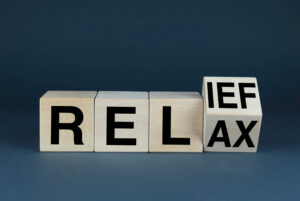- Anger is a response to a perceived threat – past, present or future.
- Anger informs us that something is not quite right. Our primary instincts are activated and then our primitive or ‘chimp’ brain goes into ‘flight, flight or freeze mode and all hell can break loose! This can be over the most trivial of incidents and perhaps on the surface it is. When we scratch beneath the surface however, no incident is trivial. There is always an underlying trigger for our anger. Beneath our anger is the sense that our values, core beliefs (negative or positive) or goals are being threatened and invalidated in some way – even though we are often unable to clearly define or articulate the nature of this perceived threat. Let’s look more closely at core beliefs and goals:
- Values
- The accepted principles or standards of an individual or a group.
- Example: Honesty, caring, integrity and reliability.
- Core Beliefs
- What the individual or group mind holds to be true or real, often determined by an emotional or spiritual sense of certainty. For example: ‘The family is very important’, Generosity is a virtue’, ‘The earth needs to be cared for and protected’, respect for elders.
- Goals
- Objectives that an individual or group wants to achieve. For example: A directorship (own business), health and fitness, ability to provide for one’s family, enough money to go on holiday etc.
- Our values, core beliefs evoke strong feelings and it is therefore important to be aware of whether our anger around them is in proportion to the event or not? Should any of them be broken then that’s when anger can quickly rise to the surface, and we can find ourselves behaving very childishly. Our reactions can be in the form of active aggression or passive aggression.
- In almost all instances where we become emotionally regressed, the underlying motive for our response is a negative core belief – in other words a belief that the core of who we are is damaged or bad.
- Negative core beliefs include:
- I am a bad person
- I am a mistake
- However hard I try, I just cannot get it right
- I am unlovable
- I am dirty
- I am stupid
- No one loves me
- I am evil
- I am ashamed
- Negative core beliefs exist in our unconscious and are associated with an historical traumatic event. They manifest as an internal critic and judge and their function is to protect others from who we believe we truly are. Their negative dialogue rules our inner lives droning on about how bad we are and how if others knew they would be horrified by what we think and feel. These thoughts encourage us to reject, deceive and abandon ourselves.
- These are the parts that we hide deny and repress and are ashamed of. It is precisely these aspects that we see reflected in others and that we react to. It is experiencing ‘shadows’ from our past, which was coined by Dr Carl Jung.
Exercise
- DISCOVER YOUR ANGER ACTIVATORS
- Make a list of 6 personal values that you hold to be importantg.
- I am an honest person
- I am a caring person
- I respect others and they respect me
- I attempt to behave with integrity towards myself and others at all times.
- I expect people to hold me accountable when I don’t behave with integrity.
- I take responsibility for my own emotional wellbeing
- Make a list of 6 goals you wish to achieve
- g., to succeed in work, to be respected etc.
- Make a list of 6 negative core beliefs that you hold about yourself e.g.
- I am unlovable, people don’t trust me, I am not a good, caring person.
- I am selfish
- Make a list of 6 shadows:
- I don’t trust other people, I don’t deserve happiness, I should never let go of control.
- Look at the examples and the next time you feel angry, stop and ask yourself if any of these factors is involved?
- Once you are able to ask yourself these questions, you can begin to make choices about your reactions which is much healthier.



